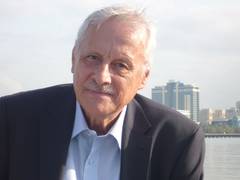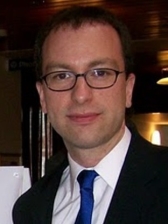

THESEUS Awards 2013
THESEUS Award for Outstanding Research on European Integration

The THESEUS Award for Outstanding Research on European Integration 2013 went to Prof. Dr. András Inotai, Hungarian Academy of Sciences.
Prof Dr András Inotai is research professor and research director of the Institute for World Economics of the Hungarian Academy of Sciences. He was the Institute’s General Director for two decades until 2011. Since July 2013, he has held a professor emeritus status.
His main fields of research are global and European economic issues, economic integration, comparative economic development, structural changes in the world, direct capital flows and host country behaviour as well as reforms of the Hungarian economic policy. With regard to the European integration process, he has focused on EU enlargement to Central and Eastern Europe, especially Hungary’s transformation process for the accession to the EU, the „integration maturity” of the new member countries, and most recently on crisis management in the EU in general and in the Eurozone in particular.
He started working at the Institute for World Economics in 1967 as a research fellow. In the 1970s, he had research and teaching assignments at the Kiel Institute of World Economy, Germany and at San Marcos University in Lima, Peru, respectively. After serving as Deputy Director of his home institution for some years, he worked in the World Bank's Trade Policy Division in Washington, D.C. from 1989 on. In 1991, he returned to Budapest, where he was appointed Director General of the Institute for World Economics. Between 1995 and 1998, he headed the Strategic Task Force at the Prime Minister’s Office in order to prepare Hungary for official negotiations with the European Union.
One of his outstanding research qualities is the capacity to link deep economic analyses with reflected political advice. His work, his outstanding expertise and his crucial academic and political contributions have extensively been acknowledged. Therefore, he has been honoured with several domestic and international awards.
András Inotai devotes himself to teaching generations of young European students. He has been professor at the College of Europe, Bruges and Natolin, since 1993. He also regularly teaches postgraduate courses at the University of Bonn and in the framework of the European Online Academy, in Berlin and in Nice. Furthermore, he acted as a visiting professor at the Columbia University in New York in 2002.
Currently, Prof Dr Inotai is a member of several scientific councils and editorial boards in various European countries, such as the Ifo Institute, Munich, the Research Centre for European Integration, Bonn, the Institute for European Politics, Berlin and the Economic Policy Institute, Sofia. Besides, he has been a member of the TEPSA Board for several mandates.
THESEUS Award for Promising Research on European Integration

Dr Francisco Seoane Pérez received the THESEUS Promising Award for his PhD thesis "A communications gap? A comparative study of regional engagement with EU politics in Yorkshire and Galicia".
Dr Francisco Seoane Pérez is an Assistant Professor at the Faculty of Journalism of the University of Castilla-La Mancha in Cuenca. He holds a PhD in Communication Studies from the University of Leeds, United Kingdom (2011), a Master’s degree in Communication from the University of Illinois in Chicago, U.S.A. (2006), where he studied with a grant from the Fundación Pedro Barrié de la Maza. In addition he holds a Bachelor’s degree in Journalism from the University of Santiago de Compostela (2001). His scholarly interests include the role of journalism in liberal democracies, the idea of a European public sphere and the impact of the Internet on political participation. He has extensively published on these topics. Besides, Dr Francisco Seoane Pérez is an associate editor of the International Journal of Media & Cultural Politics.
PhD thesis: A communications gap? A comparative study of regional engagement with EU politics in Yorkshire and Galicia
Francisco Seoane Pérez’ thesis challenges the concept of explaining the Europeans‘ seeming rejection of further European integration and the lower participation levels in European Parliament elections by the existence of a “communication cap”. Instead of this mediation theory, he suggests a cultural and structural explanation that would account for the distant and apolitical nature of EU affairs.
His research is based on in-depth interviews with a hundred EU political actors from two European regions, in which the popular support for the EU is clearly divergent (Yorkshire in the UK, Eurosceptic, and Galicia in Spain, pro-EU), and a comparative content analysis of EU news in those regions’ benchmark newspapers. As a result, he argues that the “domesticisation” and “politicisation” deficits of the EU are better explained by the elitist and anti-popular pattern of European integration, the neo-corporatist and diplomatic way of governing the EU, and the inexistence or incompleteness of a European political people (a demos). According to Seoane Pérez, the EU political regime is found to be close to the “managerial state” that Jürgen Habermas saw in post-World War II Germany. Even in regions like Galicia where the EU is positively regarded, European affairs is an administrative (non-political) matter, making the EU the sort of technocratic government that Carl Schmitt feared liberalism would lead to.
The Award Ceremony took place in Vienna on 17th October during the THESEUS Conference.